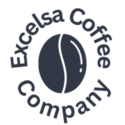There is a scene in Henry Miller's Tropic of Capricorn where Henry, working as a door-to-door encyclopedia salesman, grows disillusioned. Tired of having doors slammed in his face, he throws all the encyclopedias into the trash, leaving himself nearly destitute, yet unburdened. He then proceeds to find a party.
I suppose I’ve always related to that moment. Especially in my younger days—before a wife, before a family—if I wasn’t deeply passionate about the problem I was solving, if the challenge wasn’t big enough or worthy enough, I would rather live in my car, climbing, skiing, searching for the next meaningful pursuit. That approach hasn’t always been easy. It’s been filled with disaster, failure, moments of absolute uncertainty, and a lot of opposition from loved ones. But it has also been my guiding force—pushing me to refine my vision, learn, and grow.
My career began with an intense desire to solve big, meaningful problems. Fresh out of college and after a year of soul-searching—bicycling across the country, working on a PBS TV show about finding purpose—I set my sights on a major issue: global drowning rates. Having grown up as an ocean lifeguard, I saw firsthand the tragedy of drowning, particularly in developing countries. I wanted to use my skills to make a difference. That mission led me to co-found the International Surf Lifesaving Association (ISLA), with the goal of ending global drowning. Over a decade, ISLA expanded its programs to over 25 countries in 6 continents, training lifeguards, lobbying US Congress, working with heads of state, exchanging knowledge, and elevating water safety worldwide.
But the real moment of reckoning came when I saw the Syrian refugee crisis unfolding along the coasts of Turkey and Greece. Families—children—were drowning in the very waters I had worked to protect. I pivoted ISLA’s resources toward emergency rescue operations. That year was grueling: coordinating international professionals, managing legal complexities, navigating extremely dangerous environments, and securing offshore rescue equipment. By the end, our teams had saved over 2,000 lives. It was then I realized that ISLA would carry on without me. After over a decade of international development my work there was done. It was time for the next adventure.
That next challenge came in the form of plastics—specifically, ocean pollution. After years of traveling to far away exotic beaches, I was horrified by the plastic waste accumulating on shorelines. Determined to create a solution, I founded BioHeroes, a company dedicated to eliminating plastic waste through compostable alternatives. We invested in cutting-edge polymer technology, sourcing materials from avocado pits, agave leaves, and bamboo, and partnered with major fast-food chains to integrate sustainable packaging. But then came COVID. Supply chain disruptions, factory closures at our established plant in Wuhan, and shifting global priorities crushed our momentum. Worse, as I delved deeper into the science, I realized many bioplastics contained harmful chemicals—PFAS, fluorides—things that, despite their eco-friendly branding, still contributed to environmental harm. The mission had merit, but the existing solutions weren’t enough and the technology wasn't there yet. I had to move on.
My next pivot took me deep into the world of clean-label products, regenerative agriculture, and consumer packaged goods. I sourced everything from avocado oil to grains, produce, legumes, premium arabica and supplements, studying farming practices and the impact of biodiversity. And that’s when, with the synergy of my business partner who shared the research with me, I found out about Excelsa.
Excelsa coffee stood at the crossroads of everything I believed in: sustainability, resilience, health, and mindful consumption. It was a hardy, resilient, non-GMO coffee bean—bright, bitter-free, and lower in caffeine. More than just a unique flavor profile, Excelsa represented a movement: a chance to bring biodiversity back to coffee crops, support regenerative farming, and create economic opportunities for farmers in drier climates. The coffee industry was at risk, facing threats from climate change, monoculture farming, and unsustainable monoculture practices. Excelsa could be the answer.
Today, my mission is clear: bring Excelsa coffee to the global market, not just as a product, but as a movement. We invest in farms, pioneer regenerative agricultural techniques, streamline global supply chains, and build demand for Excelsa—ensuring that value flows back to the farmers who cultivate it. We’re not just selling coffee; we’re redefining how the industry operates.
My journey—from lifesaving to plastics to coffee—has always been about impact. It has always been about gratitude for the beauty of life and finding ways to serve others through meaningful work. I believe Excelsa coffee will change lives—just as ISLA did, just as BioHeroes tried to. And while my passion for ocean safety and sustainability will always remain, my greatest impact will come from creating better products—products that nourish people and heal the planet.
At Excelsa Coffee, we are building more than a brand. We are pioneering a future where coffee, sustainability, and purpose intersect. And I know, as a team, we’re going to make an extraordinary impact on the world.

